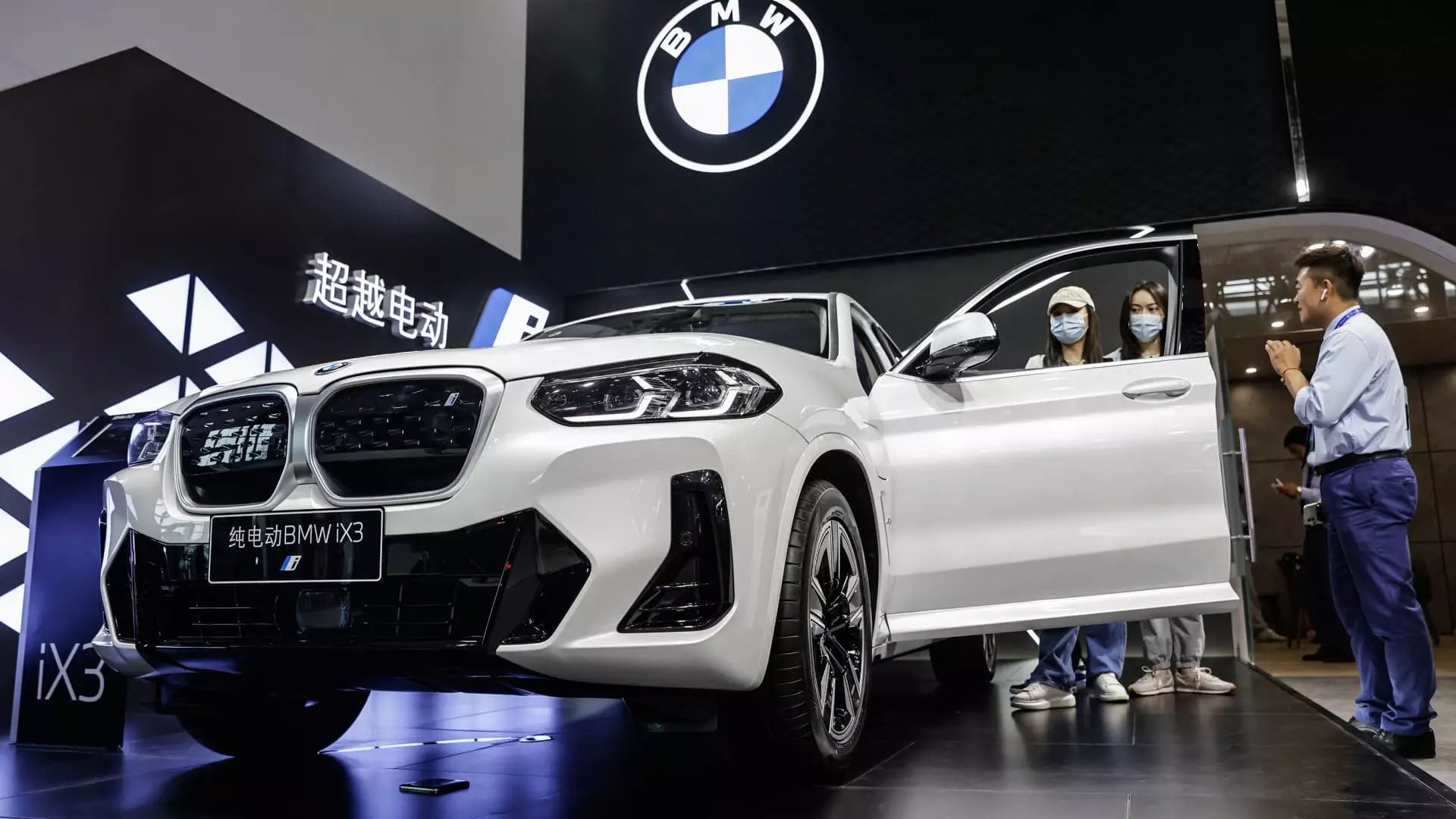In an alarming turn of events, BMW has announced a staggering 36.9% drop in net profits for 2024, bringing their earnings down to 7.68 billion euros ($8.32 billion). This dramatic decline is more than just a concerning statistic—it serves as a crucial wake-up call for the auto industry and, moreover, for global trade policies. The driving factor behind this downturn is a persistent slump in demand from the Chinese market, which has far-reaching implications for a company that prides itself on its global presence.
Market analysts had anticipated this dip, as highlighted by an LSEG forecast. However, this does not mitigate the gravity of the news. The immediate response from investors was a palpable drop in share prices, sinking by 2% shortly after the announcement. Such movements in stock valuations underscore the precarious balance between corporate performance and market sentiment, especially in today’s uncertain global economic climate.
The Tariff Tango: Unraveling Complexity
BMW’s outlook for 2025 does not promise a quick recovery, as the company estimates an earnings margin for cars of only 5% to 7%, down from the 6.3% they achieved last year. The shadow of impending tariffs looms large over the company’s projections. With additional levies on U.S. steel and aluminum imports, alongside 20% tariffs on Chinese goods, the automotive titan is bracing for a turbulent financial year ahead. These tariffs, as BMW’s chief financial officer indicated, could chip away a full percentage point from their earnings margin, illustrating the detrimental impact of trade policy on businesses that rely heavily on global supply chains.
However, one must question: are tariffs truly a panacea for the challenges faced by modern businesses? BMW CEO Oliver Zipse makes a valid point when he argues that tariffs might have made sense in a less interdependent era, yet they seem ill-suited for our highly interconnected global landscape. He posits that the prevailing method of imposing trade barriers is not just outdated but potentially counterproductive, particularly in an age where collaborative frameworks can drive innovation and competitiveness.
The Chinese Market: A Looming Challenge
The ongoing “challenging situation in China” cannot be understated; deliveries from BMW totaled approximately 2.45 million units, a noticeable dip from 2.55 million in the previous year. This decline was partly attributed to delivery halts due to a defective braking system, which forced the company to adjust its expectations downward. Yet, this operational mishap pales in comparison to the broader economic implications of reduced demand in one of the world’s largest automotive markets.
If current trends persist, we may witness a rerouting of business strategies that could redefine success in the automotive industry. Companies may opt for localized supply chains or pivot toward electric vehicles in a bid to remain competitive. As the global economy continues to shift, the failure to adapt could leave organizations like BMW stranded in a rapidly transforming landscape.
In sum, BMW’s dwindling profits are not merely a reflection of internal mismanagement or quality issues; they are a representation of the larger systemic failures inherent in protectionist trade policies, a wake-up call for companies invested in a singular market, and above all, an indication that the future may rely on smarter, more inclusive strategies that promote free trade rather than constrict it.

Leave a Reply